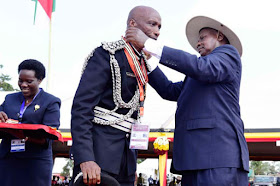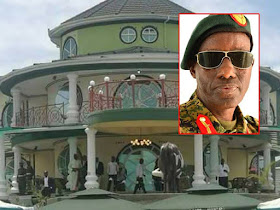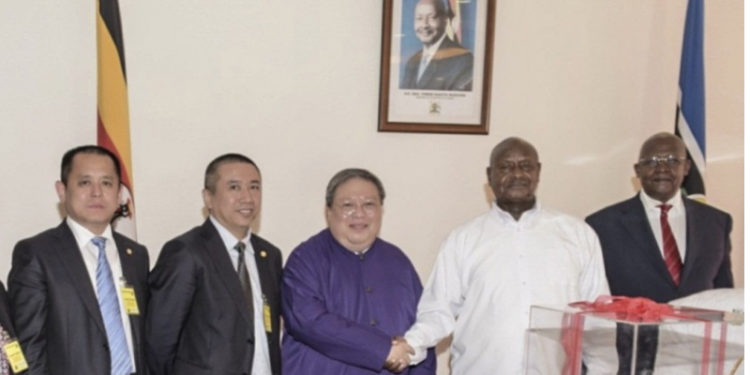By CHANGE OF GUARDS.
First published on Sunday 22 September 2019.
When Uganda’s military dictator took to the bush for his sectarian war in 1981, he was joined by the following categories:
1. The Rwandan refugees who were looking for an opportunity to return to their country through the force of arms.
2. The Banyankole army officers and civilians who wanted to get grap power from the ‘northerners’.
3. The Baganda peasants who fell victims to Museveni’s guerrilla deception.
4. The former Iddi Amin regime soldiers who were seeking safe heavens.
5. The Obote and Lutwa UNLA defectors who had no alternative.
6. A small elite class that innocently believed that the war was a revolution.
7. The innocent and overzealous illiterate and semi illiterate youth who joined out of excitement.
8. The Buganda DP supporters who sought to reclaim their poll victory from the UPC.
9. Those seeking employment.
Nonetheless, Museveni successfully manipulated all the above categories to deliver him to his childhood dream, the Presidency. Since coming to power, category 1 has left for Rwanda save for a few opportunists who playing survival games; category 2 is left with the Bahima; category 3 was left in the cold; category 4 was used and discarded; category 5 was used and is being phased out;
category 6 got a lifetime disappointment; category 7 had their future destroyed and category 8 was given a raw deal. Category 9 got what they sought and are in the service of category 2.
Once in power, Museveni used categories 2 (Banyankole army officers), 6 (unsuspecting elite corps) and 8 (the Baganda DP supporters) to consolidate his power. Once he felt he was firmly in control, he embarked on unveiling the different phases of his true character and Bush War agenda.
For the past three decades he has been unpacking his hidden agenda in phases; communist intolerance of divergent vows, power hungry, manipulative and exploitative management of public affairs, outright theft of public resources, patronage, corruption, militarism, external aggressive expeditions, selfishness, deliberate impoverishment, opportunism, sectarianism and other evils have come to light.
Corruption and abuse of office in furtherance of the above evils has been a measure of loyalty. Those who could not cope up had to leave at the earliest opportunity. Those who were still in doubt kept around but only to leave at a later stage.
In fact, for one to be free of financial scandals was a cause for Museveni and his cabal to accuse such a person of harboring presidential ambitions by maintaining a clean record. Some others were compromised and stayed inside after joining the bonanza. The rigid doubting Thomases were simply flashed out. This change of policy was well put by Museveni in his infamous pronouncement of ‘Tubejjeko’ (let’s get rid of them from our ranks).
Since almost the last one decade, whoever has remained close to Museveni or joined him is driven by nothing other than personal economic considerations. This applied to all sectors of public life – the executive, the judiciary, the legislature, CSOs including the ordinary NRM regime membership and others.
From the a foregoing it can be authoritatively argued that Museveni’s blue eyed cadre and until recently his police chief, Gen. Kalekyezi was very corrupt. Those arguing that the USA was wrong to accuse him of corruption and illegal dealing in illicit drugs and prohibited wildlife products are either ignorant or deliberately attempting to mislead Ugandans. The incorruptible parted ways with Museveni many year ago. That is why the ongoing struggle is between The Haves and The Have Nots; those in control of arms and the insecure and unarmed. For the same reasons, the former category is determined to aggressively maintain the status quo by brutally suppressing the dissenting citizens.
INFORMATION IS POWER AND THE PROBLEM OF UGANDA IS MUSEVENISM










Discussion about this post